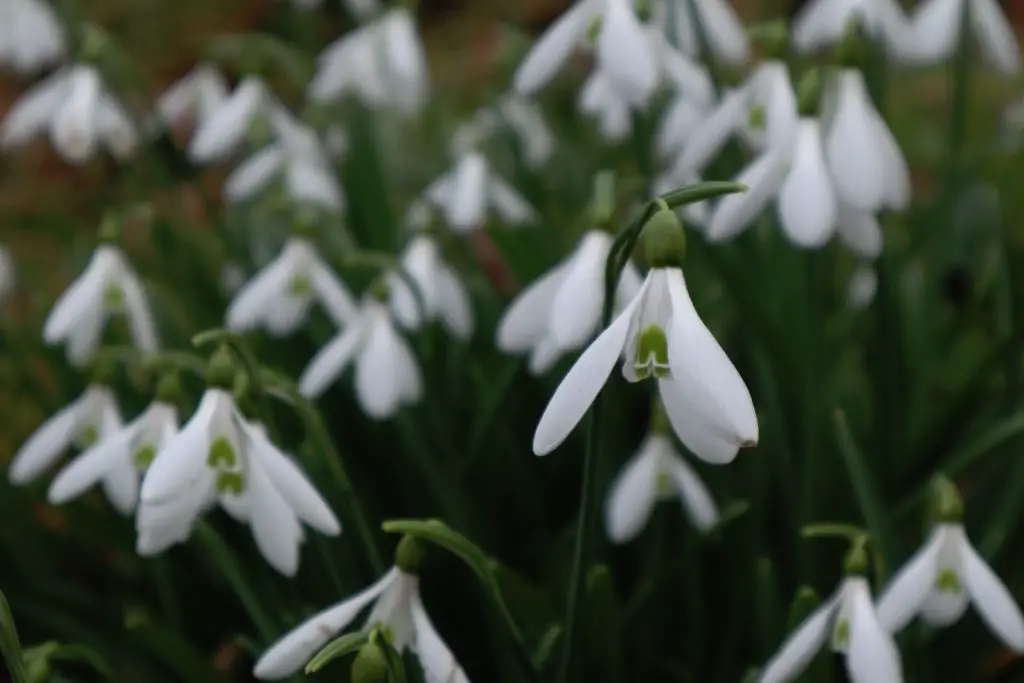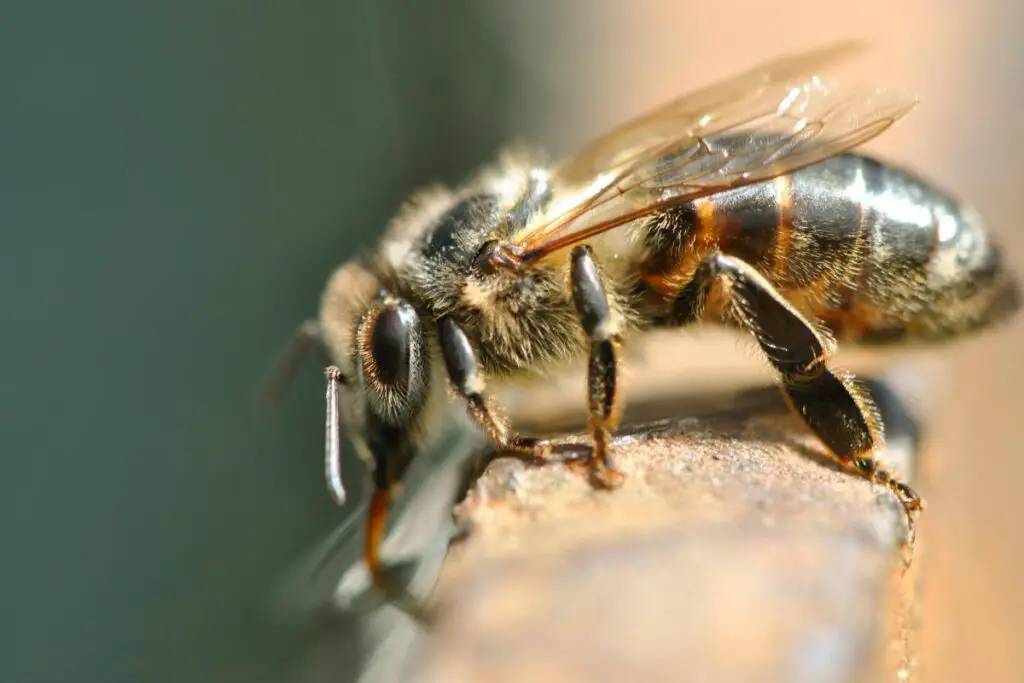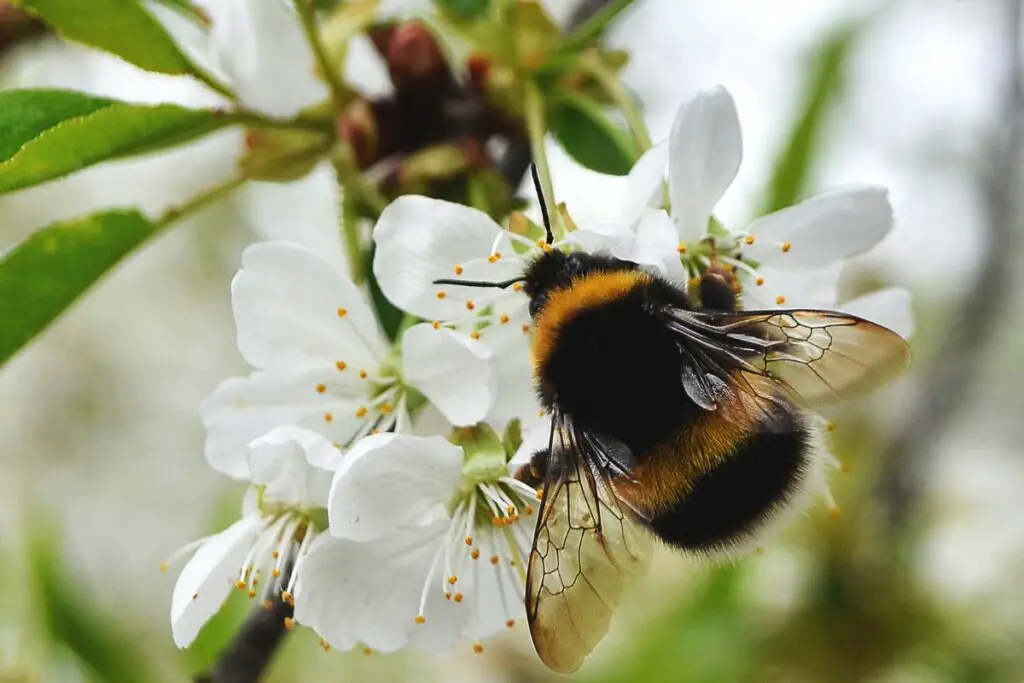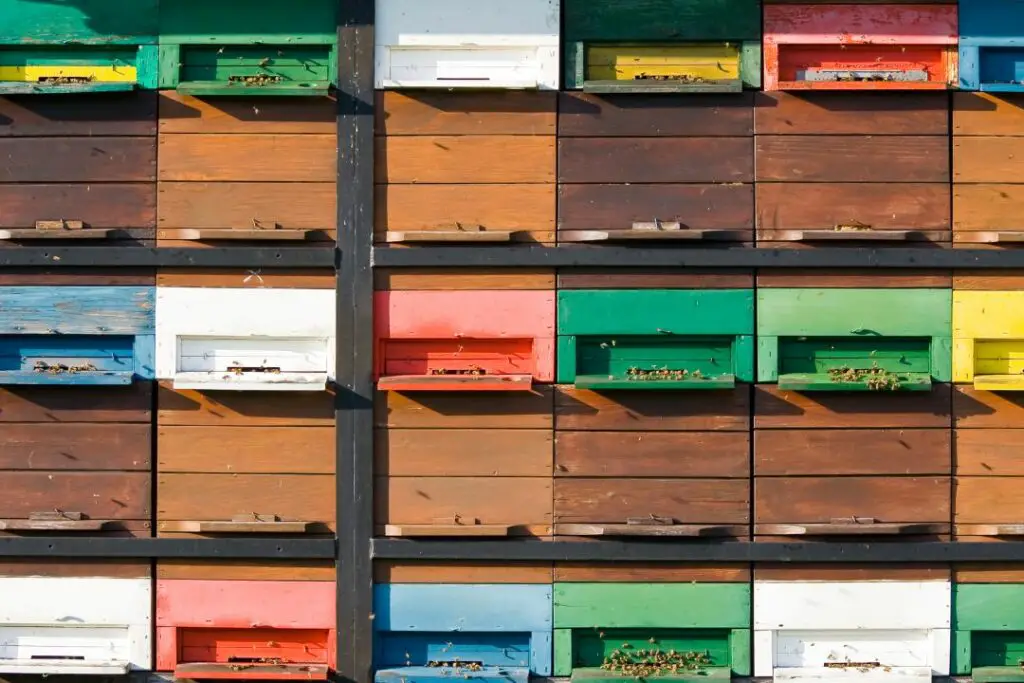Last updated on September 20th, 2023 at 08:44 pm
I’ve always thought about where bees go and how they survive over winter and I’m not talking about honey bees. This topic mostly refers to solitary British bees and how adverse weather conditions can have an unfavourable effect on the vulnerable bee population.
With so many different species of bees and a changing climate, our fuzzy friends have developed various strategies for managing and coping with extreme weather changes including the annual changes of the seasons but also some species have started to adapt to the change in the climate.
Carry on reading to find out more about how bees survive our cold wet weather and what you can do to help bees overwinter.
Honeybees Over Winter
When the summer evenings start to draw back and the temperature drops it becomes too cold for Honey Bees to fly. Instead of working the bees now spend the winter months huddling together inside the hive.
Their main goal is to keep the Queen warm so she’ll usually be found in the middle of all the hustle and bustle. On really cold days it will be too cold to go outside so honey bees will spend the winter mostly confined to their hive.
It’s now when their stores of honey provide them with the food they need to keep their energy levels up.
Honey bees are one species of bee that do not hibernate so because they’re awake during winter it wouldn’t be a surprise to find a honey bee out and about on a warmer day hunting out some fresh nectar on winter flowers.
Sugar Syrup for Bees
Most beekeepers will attach special feeders to their hives that provide the bees with a sugar syrup that’s been adapted specifically for bees.
This will not only give them the nutrients they need to keep them going through the colder months but if the beekeeper has harvested honey then it will be a crucial lifeline for the bees as they will not have as much of their own natural food resource.
Want to know more about when to harvest honey and what happens if you don’t harvest honey? Check the blog for more interesting pots.
Bumblebees Over Winter
There are lots of different species of British bumblebee and when it comes to winter they have a very different strategy, compared to the honeybee that is.
First of all, bumblebees have an annual life cycle, which means that once new Queens have developed they mate during the summer and autumn months while old Queens, workers, and males die off by the time winter comes.
As this happens the new Queens that have been busy mating will hibernate throughout the winter by digging into soft ground, burrowing under rocks, logs, or anywhere they can escape the frost.
Find out more about why bees hibernate in the ground.
They typically prefer north-facing patches of ground where they’re unlikely to be woken too early by a warm winter sun. Some bees will make the mistake of burrowing in the wrong place and will emerge from safety all confused by the warm winter sun.
Winter Nests Popular in Southern Counties
However, as the climate changes it’s been noticed that some bees have been changing their habits over the last 10 years or so. Queens are choosing to start new nests when they’d usually be hibernating.
These winter nests have been becoming more popular in the southern counties and more so in urban areas where bees can find winter flowering plants easier. Some bumblebees have even been known to make an appearance on Christmas day so be prepared to find our fuzzy friends any time of the year.
What does ‘Overwinter’ mean?
“Overwintering is the process by which some organisms pass through or wait out the winter season” Wiki
Solitary Bees Over Winter
If you’ve read the facts on our website you probably already know that there are over 220 solitary bees and they’re very diverse with varied lifestyles.
Depending on the species these solitary bees overwinter in many different ways and unlike honeybees or bumblebees, all adults usually die before winter sets in.
The busy female bees would’ve left their eggs carefully sealed away inside a burrow, lining the nest with waterproof wax secretions to protect their young from the cold wet weather and where they also leave food stores inside consisting of nectar and pollen.
Some of the most popular solitary bees include the Ashy mining bee, the Red mason bee, and the Tawny mining bee.
These bees will grow over summer from an egg into an adult, sitting tight in a sleepy state over winter ready to break free when the temperature rises and spring flowers start to blossom.
Bee Nests in Danger of being Dug Up
One danger these bees face is if their nest gets dug up by humans or other animals they’ll vacate earlier than they usually would so this could explain why you might sometimes see a confused bee during the winter.
Some other solitary bees include leafcutter bees, wool carder bees and yellow-faced bees. These emerge during late spring/summer, growing from an egg to a larva over the summer.
Rather than spending winter as sleepy adults, these bees overwinter in the larva stage entering a state of dormancy when it’s too cold to feed or grow.
As temperatures warm and spring sets in these larvae will pupate and turn into adults ready to feed on summer blooms.
There are not many solitary bees that overwinter as adults in the UK and one more popular exception are Furrow bees.
These bees mate in the autumn and then the females burrow themselves away for the winter months only to emerge and lay their eggs in the spring.
This has only been noticed in Southern counties where the warmer weather provides nicer conditions later in the year.
5 things you can do to help bees over the winter
- Create a bee-friendly garden – North-facing log piles, a rockery or even a simple man-made earth bank in your garden to give hibernating bumblebees somewhere to go is something most of us can do
- Make a bee hotel – If you don’t have one you should read our blog on how to make your own bee hotel. As we established above, different bees will want different homes at different times of the year. If you do have a bee hotel, during the winter it’s best to make sure your hotel is somewhere cool and dry such as inside an outbuilding or a shed making sure there is an opening where any overwintering bees can get outside
- Leave Dead Plant Stems – Some solitary bees may be nesting in the dead stems. When it comes to cleaning up the garden this is a perfect excuse to put off the job until it starts to warm up so leave these jobs until the spring and give the winter bees and any other overwintering insects an extra chance
- Avoid Digging your Garden – Just like we suggest leaving any dead stems, digging up your garden during the winter means you could disturb nesting bees. If you’ve seen lots of bees in your garden or you’ve noticed an area where solitary bees are nesting try to avoid digging into this area
- Plant wildflowers – Winter Honeysuckle, aconite and snowdrop are just some good winter plants that will offer the bees some food during the colder days. If you don’t have a garden you can still plant some of these in a plant box
Check out our short read on what do bees do during winter to find out how honeybees, bumblebees and solitary bees deal with the dropping temperatures as winter arrives.





